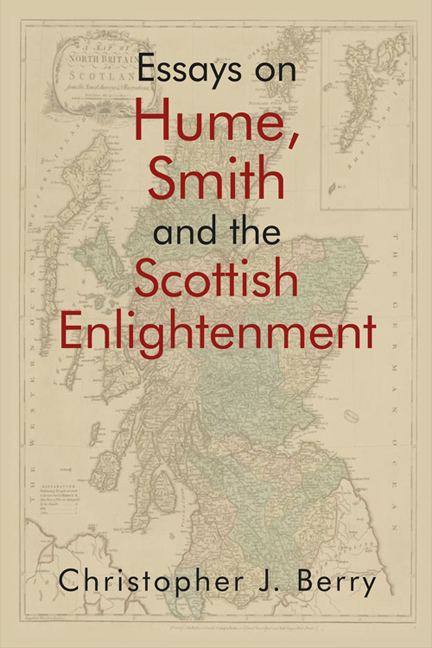2 - James Dunbar and Ideas of Sociality and Language in Eighteenth-Century Scotland
Published online by Cambridge University Press: 06 May 2021
Summary
Attention has been drawn to the writers of the Scottish Enlightenment as beginning the systematic treatment of society – as being the first sociologists. The intention of this essay is twofold: one, to place one seemingly crucial aspect of this claim, namely the belief in the social nature of man, under closer scrutiny; and, two, to conduct this scrutiny by way of an examination of the theory of James Dunbar on this point. Dunbar is a suitable subject for this exercise because his theory of sociality is distinctive and interesting in its own right but has not been closely examined. Furthermore, besides having a positive theory of his own, he also indulges in a critique of alternative theories – a critique that not only helps to characterise the broad approach of the Scottish Enlightenment on this question of sociality but also indicates the presence of differences within it.
As a preliminary to examining Dunbar's theory of sociality, we have to take heed of a more general element in his thought, namely his theory of development. This theory is best appreciated in the light of the Aristotelian Theory of Substance. Dunbar's direct reference to Aristotle in this context is found in his opening essay, where he writes: ‘The celebrated distinction of Aristotle (Ενéργϵια and Δúναμις) will then appear to have ample foundation in nature’ (EHM 4). That is, there is in ‘nature’ the distinction between latent capacity and manifest energy and a development or actualisation from the latent to the manifest. This is not to suggest that Dunbar is an Aristotelian in any strong sense; rather, he simply utilises, and acknowledges the source of, a widely received notion. Indeed, this notion of development underpins Dunbar's argument on several occasions but here we shall only consider its utilisation in his theory of sociality.
Thus, referring specifically to the human faculties (though aver ring that the progress of nations and men ‘though not exactly parallel is found in several respects to correspond’), he states:
we may remark this gradual opening … First of all, those of sense appear, grow up spontaneously or require but little culture. Next in order, the propensities of the heart display their force; a fellow-feeling with others unfolds itself gradually on the appearance of proper objects, for man becomes sociable long before he is a rational being.
- Type
- Chapter
- Information
- Essays on Hume, Smith and the Scottish Enlightenment , pp. 32 - 47Publisher: Edinburgh University PressPrint publication year: 2018



